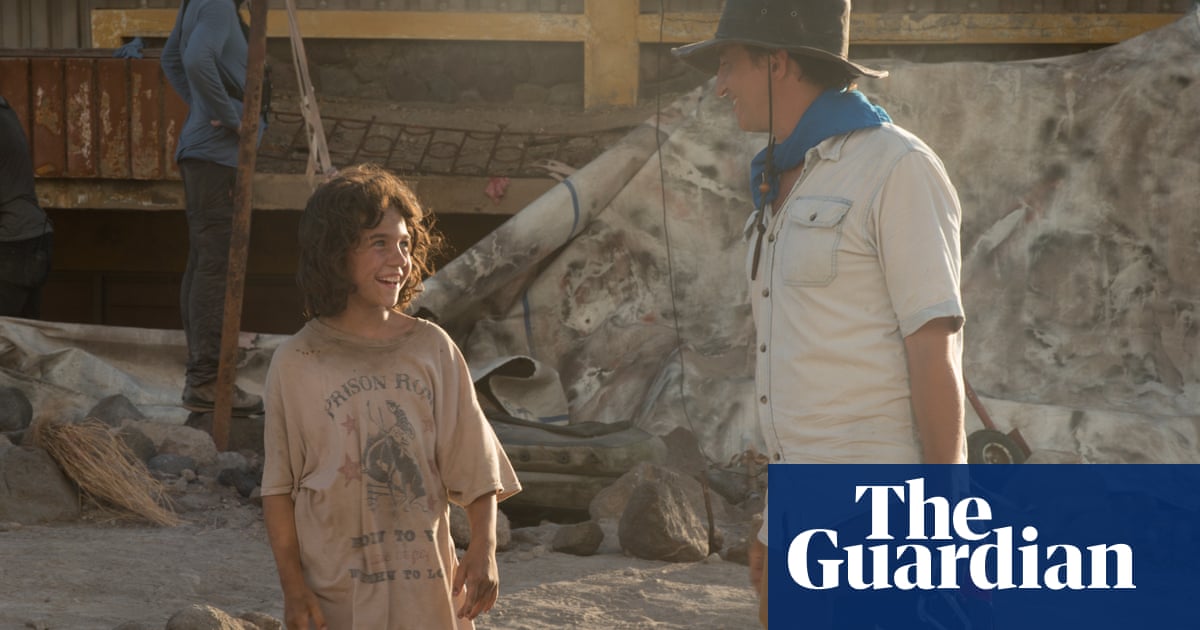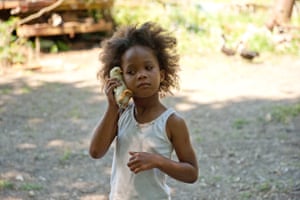After breaking out with Beasts of the Southern Wild, Benh Zeitlin has stumbled with his misjudged take on Peter Pan

Its a tale as old as time, or at least as old as Hollywood: a hotshot young director scores on their first outing and, awash with accolades and flattering box-office receipts, goes out to make their big follow-up. Then nothing. The curse of the sophomore slump strikes, leaving a once-promising talent on the skids, their initial flickers of greatness now called into question. The latest retelling of this narrative also happens to be one of the most stark, in terms of the distance between a hits point A and a bellyflops point B. This week, the new film Wendy becomes the latest spurned by that fickle mistress show business.
Back in the heady days of 2012, rookie film-maker Benh Zeitlin (born Ben H Zeitlin) was enjoying the kind of rarefied success that most fresh-faced film school grads can only fantasize about. He had completed his debut feature Beasts of the Southern Wild and landed a plum premiere slot at the Sundance film festival, where he took Park City, Utah, by storm. His film quickly emerged as a cant-miss breakout, and to cement his reputation as revelation, he won the Grand Jury prize. Fox Searchlight took notice and snapped up the distribution rights in a low-seven-figures deal, then brought the film to Cannes, where Zeitlin picked up the Camera dOr award for the best first film. More festival appearances and mounting word-of-mouth led to a handsome payday upon the release that summer, with a $23.3m haul dwarfing his $1.8m budget.
By the end of the year, he was a fixture on critics best-of lists, and the Oscars were to be his victory lap. He landed four nominations, including best director and best picture (The films nine-year-old star, Quvenzhan Wallis, claimed the title of youngest ever performer nominated for best actress.) Though he didnt win any, his presence at the Dolby Theatre that night was victory enough. There was his name, right next to Steven Spielbergs. He had made it.

He sure seemed to be on the fast track to the top as he detailed plans for his second project, a fable about a girl whisked away to a remote island, in early 2013. But the following years elapsed without a peep until 2015, when the film industry sounded a collective Oh, yeah, that guy! upon hearing news that Zeitlin was finally prepared to start production on Wendy. For those with a loose grasp of mathematics or time, that was five years ago, practically an eternity by showbiz metrics.
Delay after delay left those invested in his career wondering whether maybe this would be the year he would return to Sundance, and this past January, it was. If he was feeling any deja vu, the premieres frosty reception would have cured him of that straight away. He went from darling to also-ran, and judging by Searchlights pre-assigned release date a couple of short weeks after the festival, the studio didnt have too much faith in him to start with. In New York, Wendy has now been shuffled into two measly theaters, one of which this critic visited last night. The opening showing was, to put it charitably, sparsely attended. What could have possibly happened?
The DOA release speaks as much to changing tastes in the public as it does to Zeitlins slipping abilities. Wendy does illustrate how essential Beasts stabilizing parent-child dynamic was to its functioning, preferable to a gaggle of screaming kids all playing off of one another. And it appears that the mediating influence of Beasts screenwriter, Lucy Alibar (who also penned the play on which the film was based), counts for a bit, judging by the decline in the latest script ginned up by Zeitlin and his sister, Eliza. But Zeitlins real bugaboo extends beyond his control his cinema has fallen out of vogue.
A big component of Beasts initial success was the conversation surrounding it, which conferred its reputation as a raw transmission from the Louisiana heartland. Zeitlin drew much attention for hiring non-professional actors, most notable among them an area donut shop proprietor named Dwight Henry, who wowed audiences with his innate skill as the films second lead. He had fresh memories of starting over after Hurricane Katrina, the other part of Beasts winning formula. The social resonance of displaced rural populations and ramshackle government recovery centers lent the film an air of relevance and maturity that has not aged quite so well.

Much of the reflection on Beasts places the focus on Zeitlins gifts as a formalist, whether thats the radiant glow of the golden-hour cinematography or the rousing, oft-imitated score. The American publics slightly refined sense of racial politics hasnt shone quite so kindly on the films subtext, which sees a white director positioning his black characters as the magical half of a tale of magical realism. Wendy runs along similar lines, retelling the Peter Pan myth as a story of white youngsters taking refuge on an enchanted island people by little black children living happy and uncivilized. Rejecting the bondage of grownup society to be untamed and anarchic represents a central tenet of the philosophy Zeitlins conveying here, and the noticeable divisions in the cast suggest an unfortunate subtext. The director tells stories about black life from the outside-in, and the critical establishment has at least partially wised up. An increased presence of black voices and a heightened awareness from the white ones both converged to remove Zeitlin from the zeitgeist.
Barring some triumphant comeback with his next major work, by no means an impossibility, the director will occupy the outskirts of the field he once stood poised to conquer. Though for all we know, that will sit just fine with him. Zeitlins a proud New Orleanian, and has spent a goodly amount of time producing work for up-and-coming film-makers in the region. (
Original Article : HERE ;
from MetNews https://metnews.pw/the-problem-with-wendy-how-did-an-oscar-nominated-director-get-it-so-wrong/
No comments:
Post a Comment